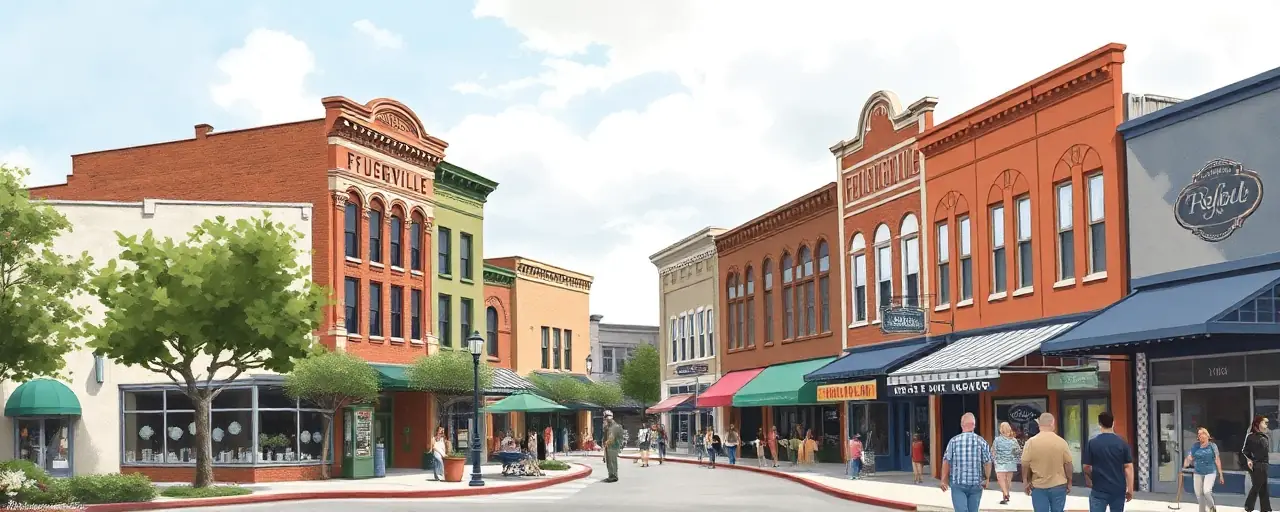When Pflugerville, a once-quiet Central Texas town of over 65,000, earned its spot as a Tourism Friendly Texas Certified Community on April 9, 2025, it didn’t just mark a local victory. It signaled a powerful shift, one that champions the kind of inclusive, forward-thinking growth Texas desperately needs. This isn’t about slapping a badge on a map; it’s about real people, real jobs, and a real chance to redefine what prosperity looks like in communities too often left out of the economic spotlight.
The announcement from Governor Greg Abbott’s office paints a rosy picture: tourism raking in $193 billion annually statewide, sustaining 1.3 million jobs—one in every 11 across Texas. Pflugerville’s piece of that pie isn’t just numbers on a ledger. It’s the single mom landing a steady gig at Typhoon Texas water park, the small business owner keeping the lights on thanks to trail-walking visitors, the family discovering a vibrant art scene that proves culture isn’t confined to big cities. This is what happens when a community bets on itself and wins.
Yet, there’s an edge to this story that cuts deeper. For years, voices in Texas have grumbled that tourism is a frivolous sideshow, a distraction from ‘serious’ industries like oil or tech. Pflugerville’s success exposes that for the tired nonsense it is. Here’s a town that’s turned parks, trails, and a welcoming spirit into an economic engine, proving you don’t need skyscrapers or fossil fuels to thrive. It’s a wake-up call for anyone still clinging to outdated playbooks.
The Power of Investing in People, Not Just Profits
What makes Pflugerville’s story sing is how it harnesses tourism to lift everyone, not just a handful of suits at the top. Travel Texas Director Tim Fennell hit the nail on the head, spotlighting the town’s parks and family-friendly draws as the heartbeat of its appeal. This isn’t some corporate cash grab; it’s a deliberate choice to build something lasting. Look at the numbers elsewhere: Richmond, Virginia, saw $3.7 billion in visitor spending in 2023, while Greenville, South Carolina, raked in $2.3 billion. These aren’t flukes. They’re proof that betting on community pays off.
Texas itself is a case study in this truth. San Antonio’s tourism sector alone pumped $21.5 billion into the local economy last year, employing 147,000 people—13 percent of the metro workforce. That’s not pocket change; that’s stability for families, tax revenue for schools, and roads that don’t crumble underfoot. Pflugerville’s certification taps into this momentum, showing how state-backed programs can amplify local efforts instead of leaving towns to fend for themselves. It’s government doing what it’s supposed to: leveling the playing field.
Contrast that with the naysayers who’d rather see tax breaks for oil barons than trails for hikers. They’ll argue tourism jobs are seasonal, low-wage, or somehow less ‘real.’ Tell that to the 11,000 workers in Galveston who’ve relied on visitor dollars since at least 2018, or the 1.3 million Texans whose livelihoods hinge on this industry today. The data doesn’t lie: tourism cuts residential taxes by up to 70 percent in some areas, funds public spaces, and keeps small businesses afloat. Dismissing it as fluff is either ignorance or arrogance, and neither holds water.
The Tourism Friendly Texas program isn’t perfect, sure. It’s opt-in, and not every town has the resources to jump through the hoops. But its very existence challenges the hands-off dogma that’s choked rural Texas for decades. By offering tools, not just talk, it invites places like Pflugerville to dream bigger. And when those dreams turn into jobs and pride, the ripple effects touch everyone—visitors and locals alike.
History backs this up. Look at Galveston in 2018: $872 million in visitor spending translated to $1.2 billion in business sales and $177 million in taxes. That’s not a one-off; it’s a pattern. Communities that embrace tourism don’t just survive—they grow stronger, more connected, more alive. Pflugerville’s leaders get that, and they’re not waiting for permission to prove it.
A Future Worth Fighting For
Pflugerville’s win isn’t the end of the road; it’s a starting line. City leaders like Tourism Coordinator Karla Gryzmala talk about trails and art with the kind of passion that makes you believe in a Texas where every town gets its shot. This isn’t about turning quiet hamlets into theme parks. It’s about recognizing that people—families, travelers, workers—deserve places that feel alive, not forgotten. And it’s about rejecting the idea that economic growth has to mean selling out or shutting out.
Texas stands at a crossroads. We can double down on the same old extraction-heavy, top-down priorities that leave half the state scrambling, or we can build on what Pflugerville’s showing us: a model where tourism fuels opportunity without trampling what makes a place special. The choice isn’t hard. It’s time to stop sneering at community-driven wins and start scaling them up. Because if a former bedroom town can pull this off, imagine what’s possible when the whole state gets on board.
